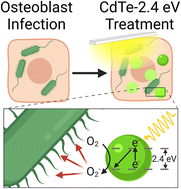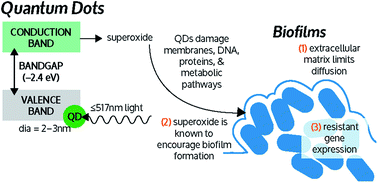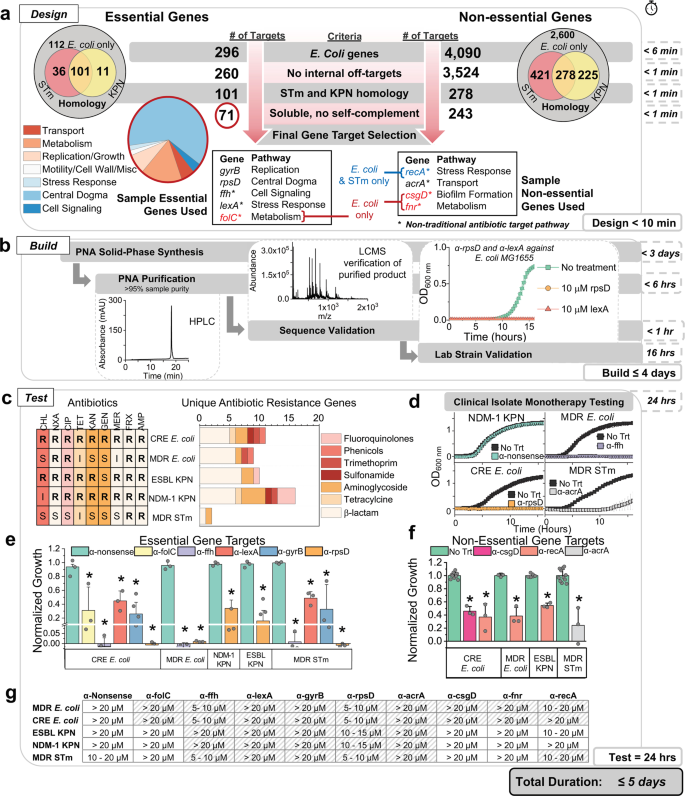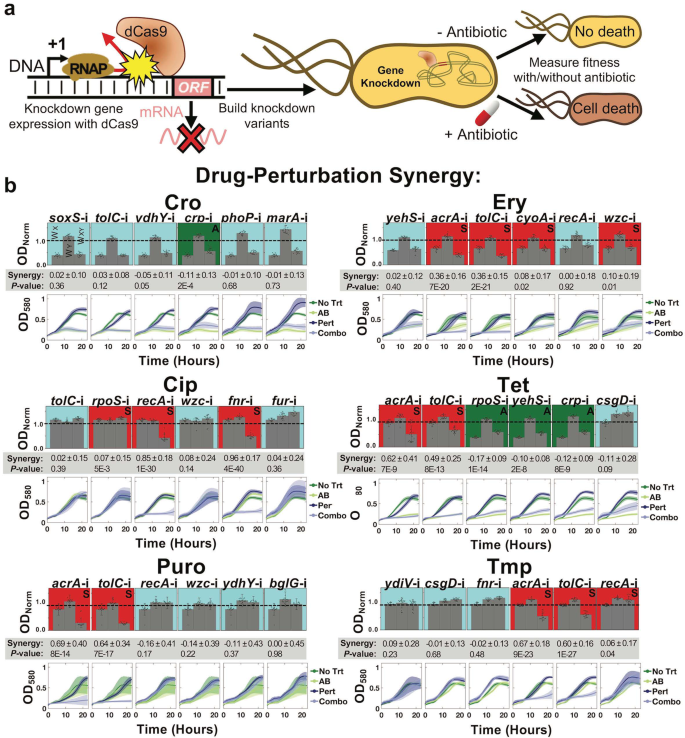Welcome
Our research group uses a combination of interdisciplinary approaches including synthetic biology, systems biology, microbiology, synthetic chemistry, and nanoengineering to address the key global challenge involving antimicrobial resistance. We aim at developing strategies for rationally engineering next-generation smart antimicrobials that can eliminate multi-drug resistant superbugs, with the ultimate goal of creating therapies that can evade evolution of drug-resistance in microbes. To this end, we are also interested in investigating the non-genetic mechanisms responsible for antimicrobial tolerance/resistance to devise strategies that can one day prevent evolution of drug resistance. Using synthetic biology tools we are also interested in designing, constructing and engineering modular synthetic genetic devices based on less-explored naturally occurring mechanisms, for both understanding fundamentally how nature works as well as built devices for potential biotechnological applications.
Featured by CU Engineering
Scientists are using chaos to try and beat E. coli
--by Chase Purdy, Quartz

For years, scientists at the University of Colorado have sought to defuse the destructive powers of a pernicious bacteria that often sneaks into the human body through tainted food. Turns out, one of the most effective ways to beat E. coli is to sow chaos. (Read more)
Lab invents CHAOS Therapy to Slow down the bacterial evolution of antibiotic resistance
How to stop an antibiotic-resistant superbug
-- By Trent Knoss, University of Colorado press release

A genetic disruption strategy developed by University of Colorado Boulder researchers effectively stymies the evolution of antibiotic-resistant bacteria such as E. coli, giving scientists a crucial leg up in the ongoing battle against deadly superbugs. (Read more)
Research led by CU Boulder could block E.coli, other superbugs
-by CHARLIE BRENNAN, Denver Post and Boulder Daily Camera

Kryptonite for superbugs could be on the horizon, as a result of research led by University of Colorado researchers that hinders the progress of antibiotic-resistant superbugs such as E.coli... (Read more)
Anushree speaks at the Institute of Systems Biology's Future of Health Symposium
Session 3: Prevention and Therapy Anushree Chatterjee, PhD | University of Colorado at Boulder "From Synthetic Biology to Nanobiotechnology: Rational Antimicrobial Engineering Approaches for Combating Multidrug-Resistant Pathogens"
BBC features our Quantum dot antibiotic research!
CGTN America features our lab's research
Battling Bacteria: Back to Square 1?
--Lab Research Featured by Hamodia

A WATERSHED IN RESEARCH STUDIES
Trailblazing research studies of diverse approaches, recently published in peer-reviewed science journals, are poised to combat antibiotic resistance. Hamodia interviewed these leading researchers, each at the helm of his study. Assistant Professors Prashant Nagpal and Anushree Chatterjee of the Department of Chemical and Biological Engineering in the University of Colorado Boulder, whose studies were published in the science journals Nature Materials and Science Advances. “Our approach is a two-pronged strategy to fight antibiotic-drug resistance..... (Read more)
MSN, Newsweek, Science News, CIDRAP features our work on potentiating drug-resistant clinical bacteria to antibiotics
Boulder, Colorado —Light-activated nanoparticles, also known as quantum dots, can provide a crucial boost in effectiveness for antibiotic treatments used to combat drug-resistant superbugs such as E. coli and Salmonella, new CU Boulder research shows......
UC Health features our research on combating antibiotic resistance
Todd Neff for UC Health- DENVER, CO. Science can border on science fiction. Designing swarms of infinitesimal semiconductors that, shined with green light, turn standard oxygen into a superoxide that makes life hell for drug-resistant bacteria – that qualifies.....
Voice of America features our Quantum dot based Antibiotic research
Boulder, Colorado — Scientists have been creating antibiotics to kill deadly bacteria for nearly 80 years. Unfortunately, the bacteria that cause disease can adapt so quickly, some have evolved into superbugs that are resistant to all antibiotics, and making new drugs is a long, expensive, involved process....
ABC Channel News Features our Light-activated nanotherapy against antibiotic-resistant “superbugs”!

In the ever-escalating evolutionary battle with drug-resistant bacteria, humans may soon have a leg up thanks to adaptive, light-activated nanotherapy developed by researchers at the University of Colorado Boulder.
Antibiotic-resistant bacteria such as Salmonella, E. Coli and Staphylococcus infect some 2 million people and kill at least 23,000 people in the United States each year. Efforts to thwart these so-called “superbugs” have consistently fallen short due to the bacteria’s ability to rapidly adapt and develop immunity to common antibiotics such as penicillin.
New research from CU-Boulder, however, suggests that the solution to this big global problem might be to think small—very small.
In findings published today in the journal Nature Materials, researchers at the Department of Chemical and Biological Engineering and the BioFrontiers Institute describe new light-activated therapeutic nanoparticles known as “quantum dots.” The dots, which are about 20,000 times smaller than a human hair and resemble the tiny semiconductors used in consumer electronics, successfully killed 92 percent of drug-resistant bacterial cells in a lab-grown culture.....






























